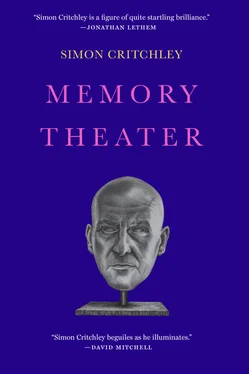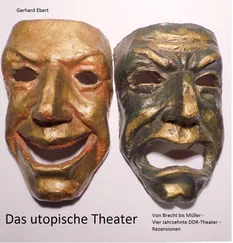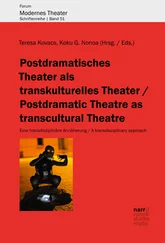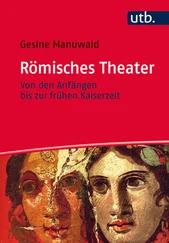Anglophile that he was, Michel had obviously read the book shortly after it had been published in London. Curiously, it just so happened that I read this book very closely during the summer of 1986, around the time I first met Michel in Italy, and had even tried to adapt some of its ideas on Leibniz’s project for a “general characteristic” into an essay I was trying to write on the history of the idea of a universal language, so beautifully ridiculed by Swift in Book Three of Gulliver’s Travels , the voyage to the academy of Laputa. Artificial memory machines litter history. Human beings seem to be persistently seduced by the idea that a theater, a palace, or a machine might be constructed that would hold the sum of knowledge in a way that would permit total recall. All we would need to do in order to attain absolute knowledge would be to enter the theater or machine and commit to memory everything therein. Of course, given what happened, it is easy to say that now.
Yates tries to show how a counter-history of the Occident can be traced through the cultivation of mnemotechnic systems, the textual basis for which can be traced back at least as far as Socrates’ denunciation of writing as a form of artificial, external memory in the Phaedrus . The idea begins with the ancient Greek poet Simonides, who was reciting a poem in a house when the ceiling collapsed. Somehow he escaped, although everybody else was crushed to death. Although the bodies of the victims were unrecognizably mangled by the gravity of the fall, Simonides was able to recall the precise places where the guests were sitting. With the association of memory with locus and location, the idea of a memory house, memory palace, or memory theater was born. The time of speech could be mastered by the spatial recollections of loci , of topoi . One would walk around in one’s memory as if in a building or, better, storehouse, inspecting the objects therein. Saint Augustine, trained as a teacher of rhetoric, even went looking for God in memory, only to discover there was “no place” where he could be found.
Very singular is this art of the memory theater. Records suggest that the construction of such theaters in antiquity reflected the proportions of classical architecture, but in an unclassical spirit, concentrating their choices on irregular places and avoiding symmetrical orders. They were full of human imagery, active and dramatic, beautiful or grotesque. In all cases, memorable. They remind one more of figures in some Gothic cathedral rather than classical art proper. Appearing utterly amoral, the purpose of the images is to give an emotional impetus to memory by means of their idiosyncrasy or strangeness. This kind of artificial memory was common in antiquity. Seneca, a teacher of rhetoric, could recite two thousand names in the order in which they had been given. Simplicius, a friend of Saint Augustine, could recite Virgil backwards. (I once met a Swede at a party in Stockholm who could sing every Swedish entry to the Eurovision Song Contest since 1958—you just said the year, 1978 say, and he would begin: “Dinga, dinga dong / Binga, binga bong”.) The striking images in a memory theater would arouse intense inner powers of visualization to aid recollection.
There was always an ancient connection between the art of memory and forms of occult Hermeticism, especially astrology. Metrodorus of Skepsis is said to have written on the order of the images of the zodiac all that he wanted to remember. But Yates shows how this ancient memory tradition is powerfully reanimated in the classicism and occultism of the Italian Renaissance. Marsilio Ficino, the translator of Plato into Latin, also translated the Corpus Hermeticum and the dialogues with Hermes Trismegistus. When the art of memory met the new teachings of the Renaissance with their belief in the divinity of man, then recollection became the via regia for recalling the entirety of knowledge from its first principles. With the mastery of the right techniques of memory, total recall would be possible and the human would become divine. The memory theater was the microcosm of the divine macrocosm of the universe.
The Renaissance memory theater announces a novel juncture in the history of memory. The architecture is no longer the Gothic cathedral by which the human creature might recall the totality of God’s creation, from the Fall to Incarnation and Resurrection through to the Last Judgment. On the contrary, the mind and memory of man are divine, having the powers of grasping the highest reality through a magically activated imagination. The art of memory becomes a Hermetic, occult, and implicitly heretical art. For the Catholic Church, incarnation is not a two-way street.
The most audacious and, indeed, memorable version of a Renaissance memory theater is that of Giulio Delminio Camillo, who was born around 1480. Although facts are scarce, Camillo reportedly built a small wooden version of his memory theater in Venice, which various luminaries visited. In a letter to Erasmus, Viglius Zuichemus writes, “They say that Giulio Camillo has constructed a certain Amphitheater, a work of wonderful skill, in which whoever is admitted as spectator will be able to discourse on any subject no less fluently than Cicero.” The eminently rational Erasmus was not amused.
In 1530, Camillo went to Paris at the request of King Francis I of France. He had been given a large pension in order to build a full-scale version of the memory theater. Apparently, it was never finished, although there were reports of various maquettes being produced. In 1554, after Camillo’s death, a manuscript was published in Venice with the title L’Idea del Theatro dell’eccellen. M. Giulio Camillo . The text gives a prose description of the proposed theater divided into seven chapters, which describe the nature of the seven grades or steps of the theater. Yates produced a detailed two-dimensional schema of the theater where the seven steps are intersected by seven gangways representing the seven planets. The normal theater function is reversed. The solitary spectator of the spectacle stands onstage gazing at the images in the auditorium. And, as in ancient theaters, the most distinguished guests sat at the front; the most important items of recollection would be in the lowest place in the theater, il primo grado del Theatro .
The theater in some ways resembled a vast and highly ornamental filing cabinet. The auditorium of the wooden theater was filled with many various and striking figures bedecked with seemingly obscure details and decorations: some symbols simply reflected the elements of the trivium and quadrivium that constituted the canon of the liberal arts. But other symbols were more obscure: a blindfolded woman standing on a serpent bearing scales in one hand denoted the various elements of natural law and its triumph over criminality; a bloodied pelican represented the mystery of the Eucharist and a reminder of the doctrine of Christ’s kenosis; and so on. Interestingly, the theater was circular and globe-like. It obviously recalled the Vitruvian circle that circumscribes the perfection of human form, which is itself an image and reflection of the cosmos. On this view, the very idea of theater, at the core of the Italian Renaissance with the construction of the Teatro Olympico in Vicenza in the 1580s, is heresy: the unity of the human and the divine.
The ancient artof memory found its most powerful advocate in the formidable personage of Giordano Bruno, born in 1548. If Copernicus ignited a revolution in astronomy and our entire thinking about the universe, then it was Bruno who spread that fire all across Europe and who was finally engulfed by the conflagration. His theories of an infinite universe and a multiplicity of worlds, combined with his fascination with the Hermetic tradition of magic and the arts of memory, led to multiple charges of heresy.
Читать дальше












